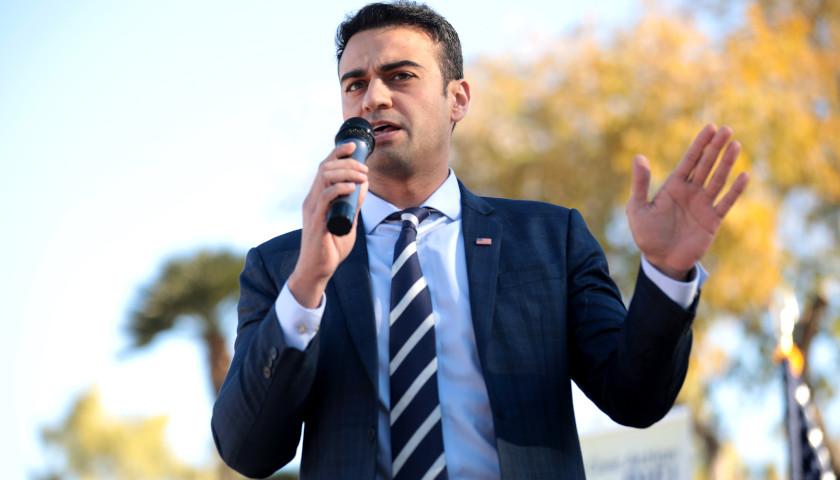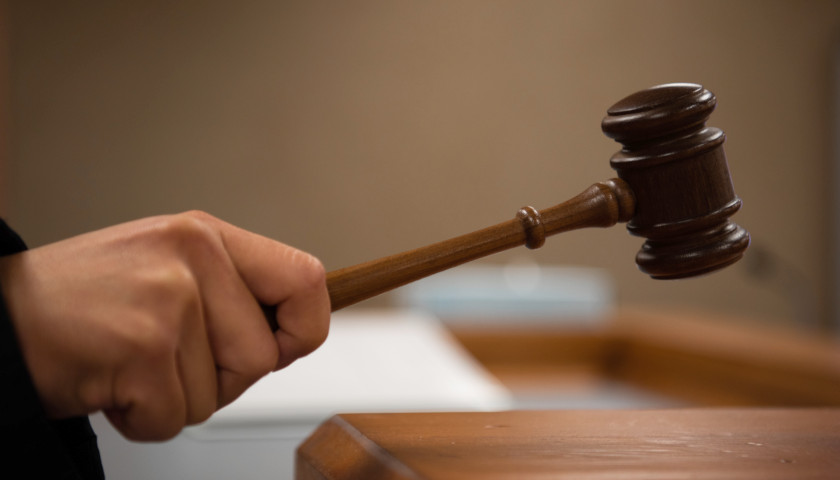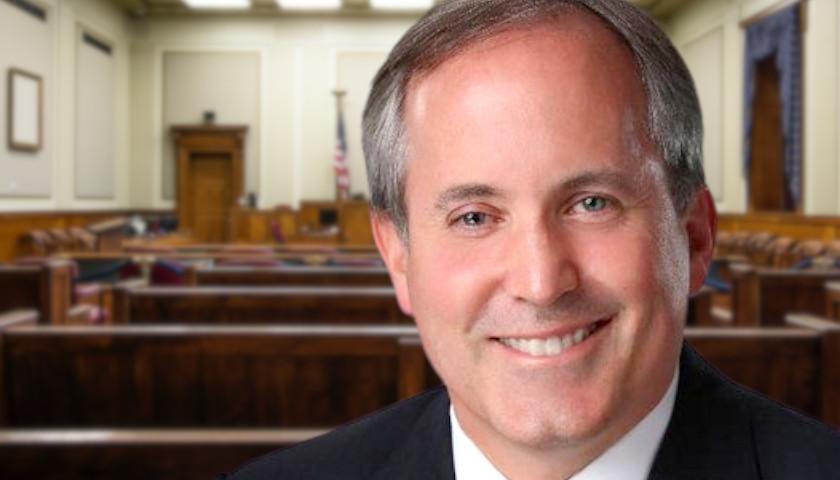Abe Hamadeh is forging ahead, challenging his 280-vote loss to Democrat Kris Mayes in the attorney general’s race, the closest statewide race in Arizona’s history. He is challenging the trial court’s refusal to grant him a new trial after discovering that then-Secretary of State Katie Hobbs withheld evidence from him before his trial regarding undervotes, votes not counted that resulted in narrowing Mayes’ lead. On Wednesday, he filed a reply to Mayes’ objections simultaneously with two amicus curiae briefs in support; one from Arizona legislative leadership and one from the America First Legal Foundation.
Hamadeh’s reply brief, primarily authored by Jennifer Wright, who previously served as the Arizona Attorney General’s Election Integrity Unit civil attorney, pointed out various contradictions in Mayes’ response. Mayes claimed that Hamadeh (pictured above) was “both too fast and too slow in attempting to obtain relief in this Court,” the brief stated. On the one hand, Mayes claimed that Hamadeh was causing “unreasonable delay,” yet she still asked for a regular appeals process, not a speedy one.
Instead, the brief argued that Hamadeh “faced a decidedly slow trial court that consistently stalled post-trial proceedings (ironically, after speeding through reasonable discovery).”
The trial court claimed that Hamadeh ran out of time during the discovery period to examine many ballots denying him the opportunity. Hamadeh said he believes as many as 76,339 undervotes statewide were not counted.
The brief stated that Mayes “radically distorted Petitioners’ arguments.” Mayes contended that Hamadeh “failed to proceed with expediency, [but] the record reflects that Petitioners filed their Motion within two business days of learning the Secretary knew at the December 23 hearing that Pinal County’s machine tabulators misread valid votes as undervotes.”
Mayes claimed that Hamadeh objected to pre-trial errors, which were too late to address, “but those errors either directly relate to the trial court’s arbitrary and capricious findings or are capable of repetition if the Motion is granted.” The remainder of the brief refuted various technical arguments regarding statutes and rules that Mayes hoped the court would use to throw out Hamadeh’s challenge.
State Senator Warren Petersen (R-Mesa) and Speaker of the House Ben Toma (R-Peoria) filed their amici curiae brief with the Arizona Supreme Court on Wednesday. They declared, “[T]his litigation has been afflicted with a barrage of indignant fulminations and obstructive machinations from the Contestee and at least some of the governmental defendants. Those litigation tactics have obstructed any searching judicial examination of the election’s administration.”
They noted that the trial court “largely indulged the Defendants’ frantic efforts to thwart any additional unearthing and exposition of relevant facts.” This “permitted only a severely truncated inspection of ballots in three counties and denied any meaningful pre-trial discovery.”
Interpretation of the election contest statutes A.R.S. 16-676(A) and A.R.S. 16-677 was unfairly limited, the pair said, thwarting the legislature’s intent with those laws.
“If left uncorrected, the trial court’s misconception of these statutes would effectively disable mechanisms the Legislature established to ensure a rigorous verification and vetting of the vote count when, as here, there are genuine and good faith questions concerning the accuracy of the final tabulation.”
They argued that the defendants deliberately ran out the clock, so Hamadeh could not complete discovery within the 15-day window allowed in the statute.
“For more than three weeks, the Contestants were denied any substantive access to the ballots,” the brief said. “Indeed, even as the Secretary and Contestee maneuvered to moot the case and avoid litigation, they simultaneously mocked and sought to sanction the Contestants for not presenting the very evidence that was being withheld.”
The pair concluded that allowing an inspection of the ballots would “only result in the enfranchisement of more voters.”
The America First Legal Foundation’s (AFLF) amicus curiae brief emphasized that there were more questionable votes than the 280-vote difference. AFLF pointed out that Mayes’ arguments in the original trial were based on a 511-vote difference. Mayes’ argument stated, “The only ‘support’ that Plaintiffs seemingly muster shows that 395 votes may be affected.” Accordingly, AFLF said “this argument was entirely fallacious, as the alleged 395 votes would be enough to change the election result.”
AFLF blasted the failure to disclose the undervotes, stating “the result was predetermined by the Defendants’ decision not to disclose vital evidence.”
AFLF argued, “The Superior Court’s interpretation of Arizona’s election statutes would empower government election officials to preordain the outcome of election contests by choosing which information to disclose to the contestant.”
Additionally, “If election officials get to decide whether to respond promptly or late to valid requests for ballot inspection, then election officials have the power to end election contests before they’ve even begun.”
The brief accused Mayes and her counsel of making false statements to the court, a violation of Ethical Rule 3.3(a)(1) of Arizona’s Rules of Professional Conduct, since they allegedly knew when they made those arguments that the margin was only 280 votes.
AFLF argued that the trial court wrongly limited the number of ballots for inspection. A.R.S. 16-677 places no limit on the number that can be inspected, and case law states that “the rules of discovery are to be broadly and liberally construed.” Hamadeh said he wants to count provisional ballots and inspect the Cast Vote Record.
AFLF concluded, “The Superior Court’s interpretation of the election contest statute can lead to the absurd result that the candidate with the highest number of legal votes is not declared the winner of an election because the election contest was marred by irregularities, incomplete inspection of ballots, and potential misconduct.”
Hamadeh filed his special action in early August directly with the Arizona Supreme Court because the trial court failed to enter a final judgment when it rejected his request for a new trial. Without a final judgment, he is unable to conduct a regular appeal. His brief noted that it has been 281 days since the election, and the judge still has not entered a final judgment, despite the fact election contests are supposed to be conducted speedily. Mayes has now been in office for approximately one-eighth of the term.
– – –
Rachel Alexander is a reporter at The Arizona Sun Times and The Star News Network. Follow Rachel on Twitter. Email tips to [email protected].
Photo “Abe Hamadeh” by Gage Skidmore. CC BY-SA 2.0.





